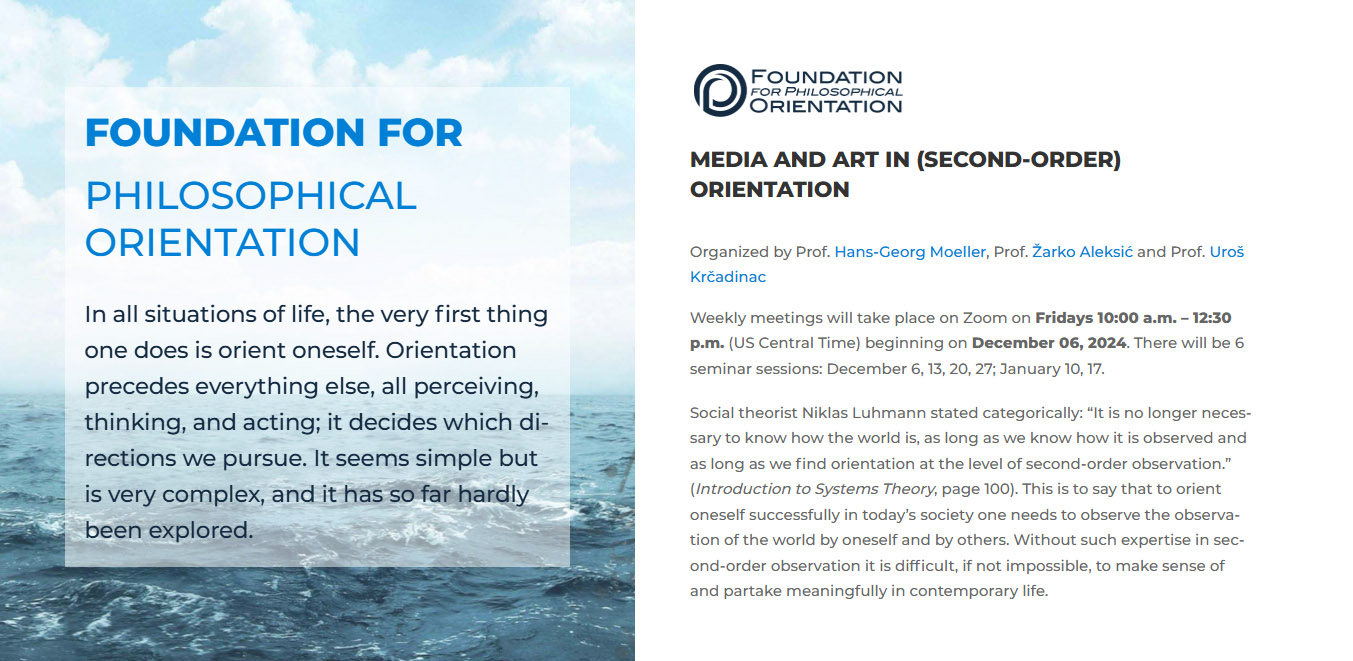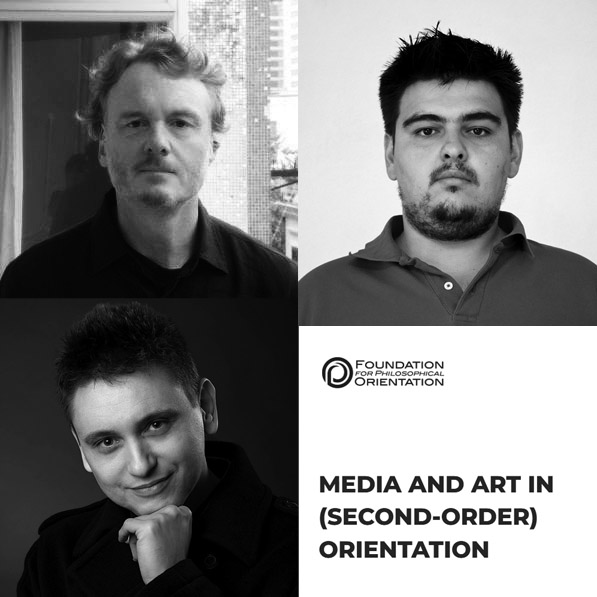This seminar explores how we navigate the complexities of today’s world through second-order observation – the ability to observe how we and others observe. Drawing from Niklas Luhmann’s media theory, the course connects philosophy, media, and art to help participants understand and reflect on contemporary society shaped by mass and social media.
Prof. Hans-Georg Moeller, a philosopher, expert on Luhmann, and the author of the YouTube channel Carefree Wandering, introduces key concepts from 20th-century media theory and explains how mass media shapes our reality through second-order observation. His sessions focus on the role of media in constructing social meaning and offer Luhmann’s theory as a powerful alternative to traditional media thinkers.
Prof. Žarko Aleksić, a contemporary artist, presents works that explore how art is produced and interpreted within institutional frameworks. He reflects on identity, credibility, and the observer's role in the art world, sharing projects that examine how narratives, curatorial power, and visibility shape artistic value.
Prof. Uroš Krčadinac explores how artificial intelligence and generative media influence how we perceive, produce, and critique art. His sessions include case studies on AI-driven art and its role in shaping identities, cultural narratives, and our orientation in algorithmic realities.
The course was produced by the Foundation for Philosophical Orientation. ■

